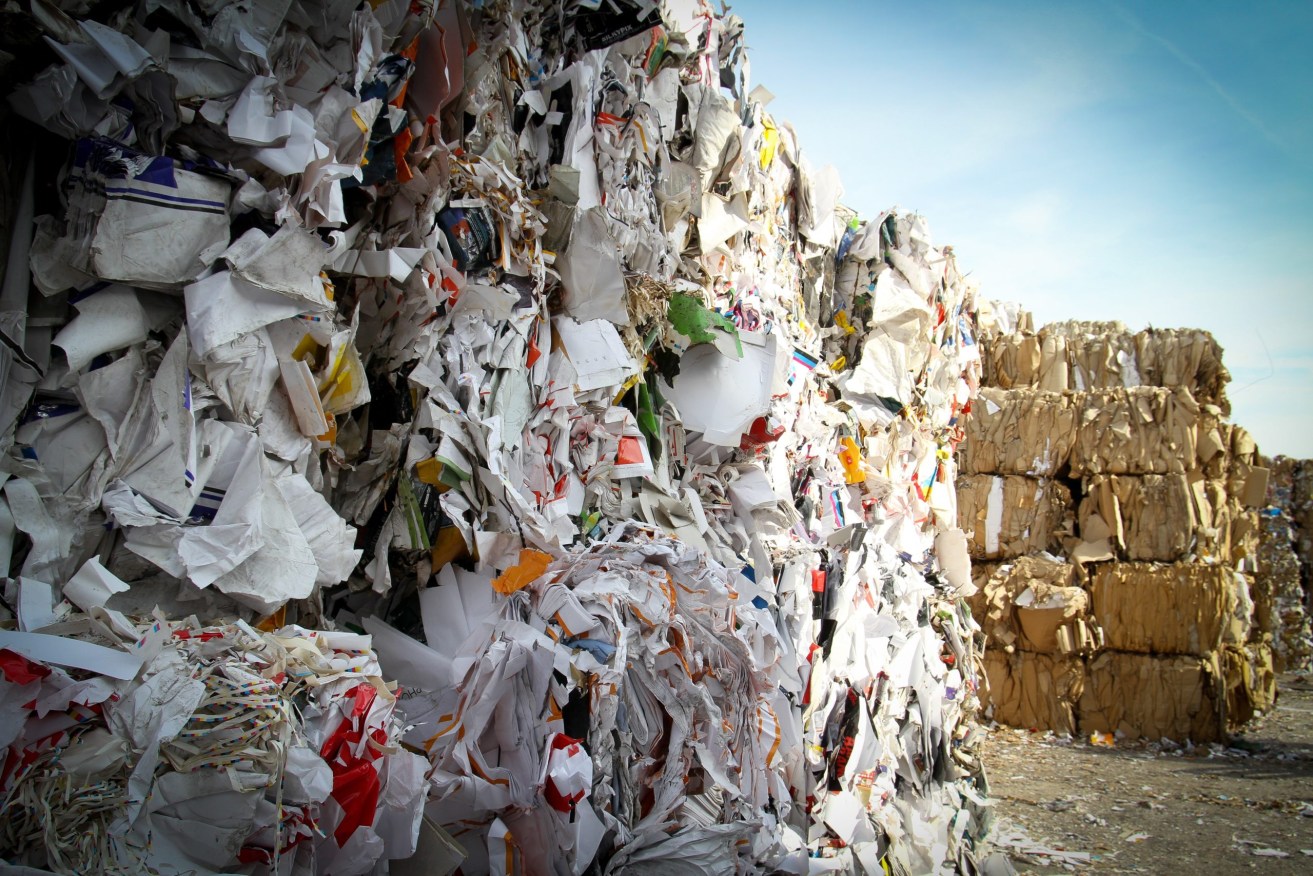CSIRO says ending throw-away culture could save Australia $1 billion
The CSIRO has outlined a plan to generate about $1 billion for the economy as well as generate jobs, but needs business to provide the innovation.


Australia could add $1 billion to its economy by using implementing better recycling practices.
The organisation was exploring research pathways in support of a circular economy, with an objective of reducing total waste generated in Australia by 10 per cent per person by 2030.
It has developed key strategies for creating jobs and reclaiming billions in economic value from plastic, glass, paper and tyres currently going into landfill.
The National Circular Economy Roadmap found innovation was crucial to realising Australia’s largest economic gains, which would come from designing new products and materials, including through advanced manufacturing, and in embracing new business models that would create domestic and export markets for waste streams.
“This could more than triple job creation from resource recovery in Australia, where the recycling sector currently generates 9.2 jobs per 10,000 tonnes of waste, compared with only 2.8 jobs for the same amount of waste sent to landfill,” the report said.
“Increasing Australia’s recovery rate by just 5 per cent would add an estimated $1 billion to GDP.”
The report said the Federal Government’s ban on the export of waste last year created an opportunity for a new circular economy strategy that turns landfill into economic returns.
CSIRO chief executive Dr Larry Marshall said science and technology can drive Australia’s next wave of economic opportunities.
“Australia is among the world’s best in advanced manufacturing and environmental research, and that unique science can turn industry and environment into partners by making sustainability profitable,” he said.
“Science can transform our economy into a circular one that renews and reuses what we previously discarded, and indeed a virtuous circle that creates higher paid jobs, advances new Australian technology, and protects our environment.
“We’re on a mission to make it real. The practical path laid out in this roadmap is part of CSIRO’s mission-led focus on using science to solve our greatest challenges while driving our economic recovery and building future resilience.”
Project leader Dr Heinz Schandl said the traditional “take-make-dispose” consumption pattern was hitting two walls: increasingly expensive primary materials and unacceptable ways of dealing with waste.
“The global pandemic has disrupted global supply chains which challenges Australia to be self-sufficient with sovereign manufacturing capability,” he said
The roadmap identifies six elements for moving towards a circular economy of plastics, paper, glass and tyres:
- Retain material through use and collection
- Upscale and innovate recycling technologies
- Innovate and collaborate in design and manufacture
- Develop markets for secondary materials and the products that use them
- Streamline nationally consistent governance
- Secure a national zero waste culture
LOST TO LANDFILL: The hidden gems in our waste
Plastic – $419 million: Australia loses $419 million every year by not recycling PET and HDPE plastics.
Paper – $115 million: Cost savings from sending paper fibre to landfill is around $70 per tonne. With 1,642 kilotonnes sent to landfill each year, that’s $115 million.
Lithium – $2.5 billion: Sending lithium from batteries to landfill results in a lost economic opportunity of up to $2.5 billion by 2036.
Litter – $70 million: Australia spent $70 million cleaning up dumped waste in 2016–17.












